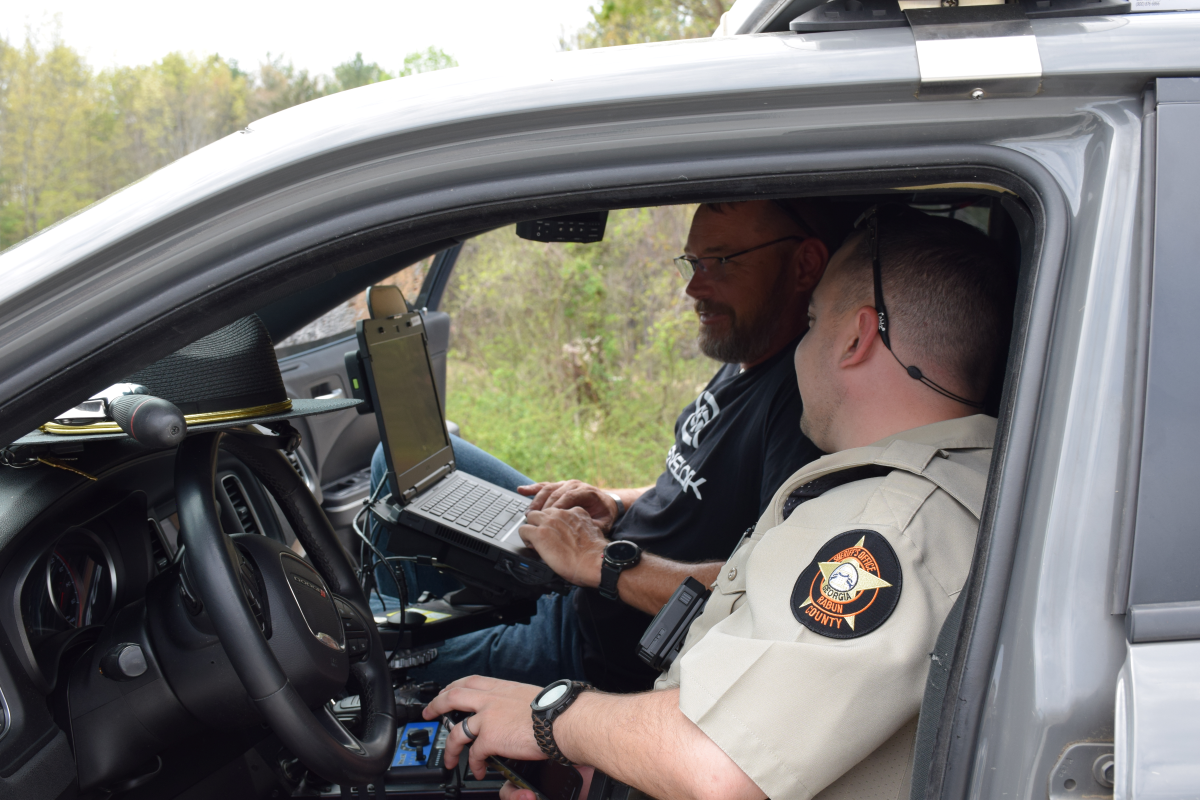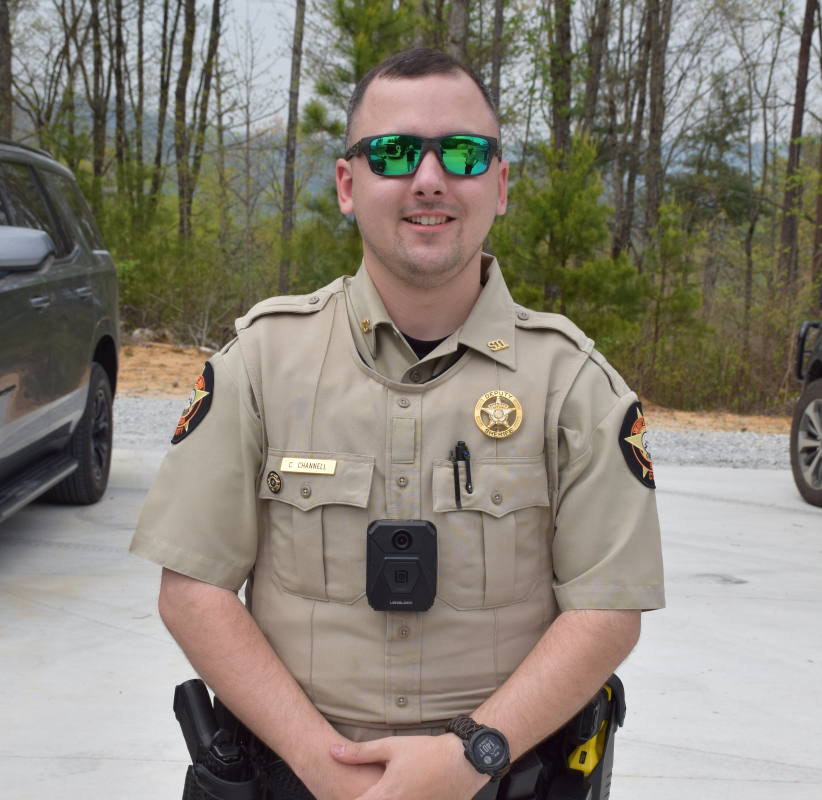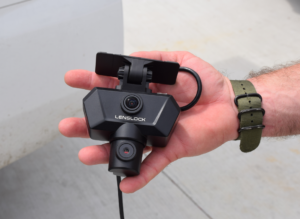
The Rabun County Sheriff’s Office is striving for a new level of transparency and protection for its officers and the public. Over the next 45 days, the sheriff’s office is testing new in-car and body cameras.
Investigator Kevin Angell showcased the device installation on April 16. He says Rabun County Sheriff Chad Nichols continues to add technology to assist his officers.
“The sheriff, himself, has always been a big proponent of body cameras,” Angell explains.
It’s a trend Nichols carried over from his days as police chief in Baldwin.
Nichols was hired as police chief in 2014, shortly after the officer-involved shooting in Ferguson, Missouri. He saw then the importance of having his officers outfitted with body cameras. The then-chief asked the city council to approve the cameras, and it did. To this day, Baldwin police officers are still outfitted with body cameras.
Flash forward ten years to today. The Rabun County Sheriff’s Office is testing a new advanced in-car camera system called Lenslock. The company that produces the cameras is based in Tampa, Florida.

Pilot program
According to Angell, Lenslock’s unique feature is that body cameras are included in the package price. The sheriff’s office tested two other systems but they price out their body cameras separately, resulting in increased costs.
After the testing phase is over, Sheriff Nichols will determine which system to use.
Investigator Angell spent more than a year as an instructor and spokesperson for the Georgia Public Safety Training Center in Forsyth. Like Sheriff Nichols, he understands the value of incorporating modern technology into the age-old profession of policing.
Angell explains that by equipping deputies with body cameras, their superiors and those involved in the judicial process can see what the officer sees when investigating a crime scene or interviewing a witness.
“We really get to see it from their point of view,” he says.

Pilot testers
Deputies with Rabun County’s Special Traffic Enforcement Program (S.T.E.P.) and detectives in the Investigative Division will pilot test Lenslock’s cameras. Those two units were chosen because they should provide a good overview of how the equipment functions in various situations.
The sheriff’s office will be able to view how the system functions in various situations, whether at a DUI traffic stop or in a witness interview. This will let them know if the audio and the field of view from the cameras are satisfactory.
Secure off-site storage prevents tampering
Another feature of the Lenslock program is that the system allows videos to be uploaded wirelessly at the sheriff’s office. The body camera can upload wirelessly or through a docking/charging station.
Another key feature is that the videos are stored in the Lenslock ‘cloud.’ This off-site storage capability would save the sheriff’s office money by avoiding the need to purchase and maintain on-site servers for data storage.
The system also prevents videos from being manipulated, edited, or erased. All videos are treated as evidence. They are “stamped” every time they are viewed with information about who watched the video and when.
Community and cost
“Looking at our mission statement which includes ‘pride,’ part of that is being responsible to our community through transparency,” says Angell. He adds, “The best way to do that is to have those body cameras, which is the next step up from in-car cameras.”
Sheriff Nichols explains that they will test these camera systems during this pilot program phase. If the pilot program goes well and the quality is as good or better than what they have now, it will be a serious consideration.
“None of the others have offered this, or it was an astronomical price,” says Nichols.

The cost for 18 camera systems will be approximately $45,000 a year. The pricing is based on a five-year lease/purchase program.
However, the Sheriff’s Office doesn’t have to worry about the added cost of hiring a deputy to manage the system, data storage for the videos, or maintenance of the camera systems. The company will cover all of that.
Nichols says he has discussed the matter with the Rabun County Commission and says they support the move. According to the sheriff, the county will pay for the camera systems, but he is looking for grant opportunities to cover at least some of the costs.






